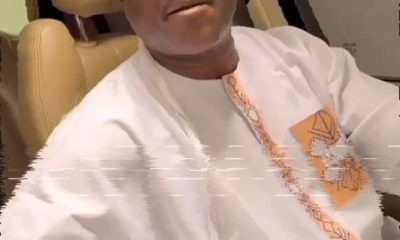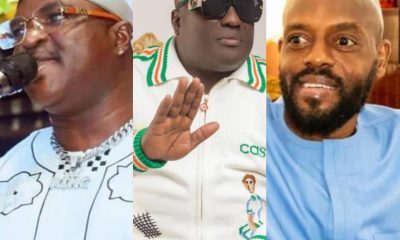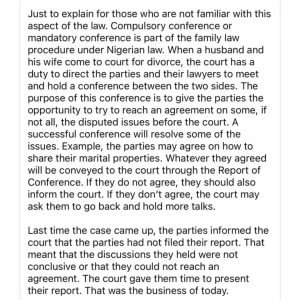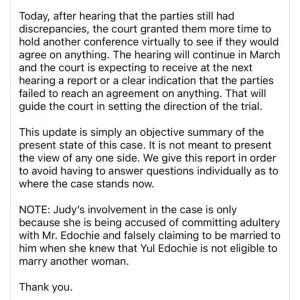Auto
Fuji Icon Obesere Celebrates 60th Birthday: Elite Women Musician Club of Nigeria Felicitates With Him

Fuji Icon Obesere Celebrates 60th Birthday: Elite Women Musician Club of Nigeria Felicitates With Him
The Nigerian music industry is set to celebrate a monumental occasion tomorrow, January 28, 2025, as popular Fuji legend, Abass Akande Obesere, marks his 60th birthday. Known for his electrifying performances and groundbreaking contributions to Fuji music, Obesere has remained a prominent figure in the industry for decades, captivating audiences with his unique sound and vibrant stage presence.
In honor of this special milestone, the Elite Women Musicians Club of Nigeria has extended heartfelt birthday wishes to the Fuji maestro. On behalf of the club, the president, Alhaja Queen Isimot Abake Abiola (PQ1st), the vice president, Alhaja Queen Halimot Ayinla Omowura, and the Iya Egbe, the renowned Juju artiste Queen Ayotunde Balogun, expressed their profound joy in celebrating Obesere, describing him as a trailblazer whose impact has transcended generations.
“We join the music community and his countless fans worldwide in celebrating the incredible legacy of Obesere,” Queen Isimot Abiola remarked. “His dedication, artistry, and influence in Fuji music remain unmatched, and we wish him many more years of good health, happiness, and success.”
The club, which unites female artists across various musical genres, fostering collaboration and empowerment within the Nigerian music industry, recognizes Obesere’s immense contributions as a source of inspiration for musicians across the board.
As Obesere reaches this remarkable milestone, fans and well-wishers across Nigeria and beyond are already gearing up to honor the legendary artist, whose music has left an indelible mark on the hearts of many.
From all of us at the Elite Women Musicians Club of Nigeria and the global music fraternity, happy 60th birthday to the Paragon of Fuji Music, Obesere!
Auto
Divorce Showdown: Yul and May Edochie’s Legal Battle Intensifies as Court Orders Further Talks

Divorce Showdown: Yul and May Edochie’s Legal Battle Intensifies as Court Orders Further Talks
The divorce saga between Nollywood star Yul Edochie and his estranged wife, May Edochie, has taken a new turn as their lawyer, Emeka Ugwuonye, shares fresh updates on the high-profile case.
In a dramatic legal development, the court held a compulsory conference as mandated by Nigerian family law. This legal process requires both parties to engage in discussions, along with their lawyers, in an attempt to resolve at least some of the contested issues before the court.
Ugwuonye, in a Facebook post, provided a detailed breakdown of the proceedings:
DPA UPDATE ON THE DIVORCE CASE OF MARY YUL-EDOCHIE V. YUL EDOCHIE AND UCHECHUKWU JUDITH MUOGHALU (JUDY AUSTIN)
“The court held a hearing on the case today. The issue before the court was the report of the compulsory conference previously ordered by the judge.
A compulsory or mandatory conference is a requirement in family law proceedings under Nigerian law. It provides an opportunity for the divorcing parties to discuss and attempt to reach agreements on certain aspects of their separation, such as property division and other contested matters. Any agreements reached are then conveyed to the court through a formal report.
However, in the last court session, it was revealed that no conclusive agreement had been reached between Yul and May Edochie. As a result, the court extended the timeframe for further discussions, granting them more time to hold another virtual conference.
The court expects to receive an updated report during the next hearing scheduled for March. If the parties continue to disagree, the court will then decide the direction of the trial.
This latest update comes as May Edochie continues to push for legal resolution regarding her marriage, while Judy Austin’s involvement in the case remains a key point of contention. She stands accused of committing adultery with Yul Edochie and falsely claiming to be married to him despite his legal ineligibility for a second marriage.
With tensions running high, all eyes are now on the next court date to see whether the estranged couple will reach any form of settlement or if the case will escalate into a full-blown courtroom battle.
Stay tuned for more updates on this unfolding legal drama.
Auto
Drama and Redemption: Carolyna Hutchings Publicly Apologizes to Laura Ikeji on Real Housewives of Lagos

Drama and Redemption: Carolyna Hutchings Publicly Apologizes to Laura Ikeji on Real Housewives of Lagos
Scottish-Nigerian actress and reality TV star Carolyna Hutchings has finally extended an apology to her fellow castmate, Laura Ikeji, in the ongoing season of The Real Housewives of Lagos, marking a dramatic turn in their long-standing feud.
Fans of the show will recall that Carolyna and Laura engaged in a fiery altercation during Season One, exchanging harsh words and insults. The intense clash led many viewers to believe that Carolyna had bullied Laura, who was reportedly pregnant at the time.
However, in a surprising twist in Episode Two of the latest Season Three, Carolyna took accountability for her past actions and expressed regret over the hurtful words she used against Laura. In an emotional moment, she publicly apologized for a rumor she had previously weaponized against her colleague.
“I heard an unflattering rumor about Laura, and I used it to abuse her, and I’m sorry. I made a statement that I wasn’t in a position to make. It didn’t matter if I heard it, saw it, or was told by a close friend; regardless, I wasn’t supposed to say that,” Carolyna confessed.
The apology has sparked mixed reactions among fans, with some applauding Carolyna’s maturity and growth, while others remain skeptical about the sincerity of her gesture. The unexpected reconciliation adds another layer of intrigue to the already drama-packed reality series.
With tensions seemingly easing between the two stars, viewers are left wondering if this marks the beginning of a new friendship or just a temporary truce. As The Real Housewives of Lagos unfolds, fans are eagerly watching to see how this newfound peace will impact the show’s ever-evolving dynamics.
Auto
Wizkid Flaunts Luxury Again: Acquires Ferrari 296 GTS After N1.4 Billion McLaren

Wizkid Flaunts Luxury Again: Acquires Ferrari 296 GTS After N1.4 Billion McLaren
Renowned Afrobeats sensation, Ayodeji Ibrahim Balogun, popularly known as Wizkid, has once again demonstrated his love for luxury with the acquisition of a brand-new Ferrari 296 GTS. This latest purchase further cements his status as one of Afrobeats’ most extravagant stars.
This acquisition comes shortly after Wizkid purchased a 2024 McLaren 750S, reportedly worth a staggering 1.4 billion naira. A recently surfaced video showcases the Ferrari being carefully driven down a ramp, giving fans a first glimpse of its striking red exterior.
The footage of Wizkid’s latest luxury ride has set social media abuzz, with fans and industry colleagues flooding him with congratulatory messages. Reports indicate that the Ferrari 296 GTS was purchased from the automobile brand Polcano and is valued at over 1.4 billion naira.
Wizkid’s taste for high-end automobiles is well-documented. In 2024, he also made headlines when he gifted his sister, Yetunde, a Range Rover worth 250 million naira as a festive season surprise.
With each new acquisition, Wizkid continues to showcase his success and love for luxury, solidifying his place among the elite in the entertainment industry.
-

 celebrity radar - gossips6 months ago
celebrity radar - gossips6 months agoWhy Babangida’s Hilltop Home Became Nigeria’s Political “Mecca”
-

 society6 months ago
society6 months agoPower is a Loan, Not a Possession: The Sacred Duty of Planting People
-

 society5 months ago
society5 months agoReligion: Africa’s Oldest Weapon of Enslavement and the Forgotten Truth
-

 news6 months ago
news6 months agoTHE APPOINTMENT OF WASIU AYINDE BY THE FEDERAL GOVERNMENT AS AN AMBASSADOR SOUNDS EMBARRASSING











